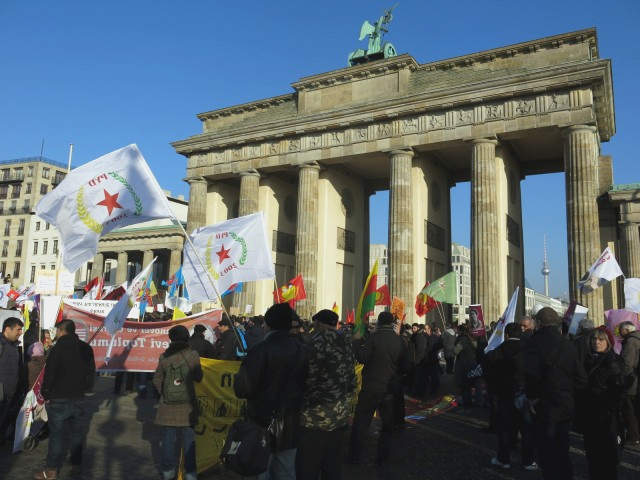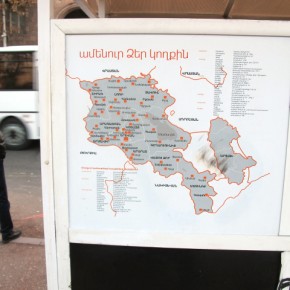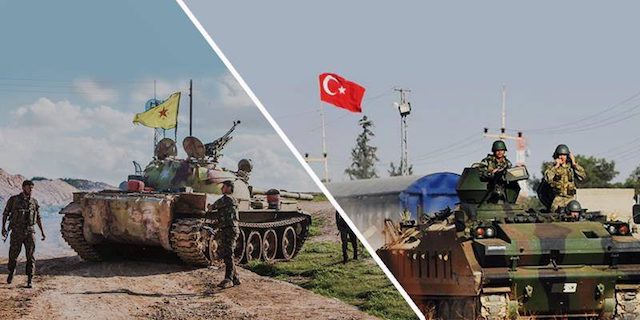It was a sight to behold. Yesterday, a large crowd of German Turks gathered at Brandenburg Gate in order to protest against Recep Tayyip Erdogan. The location was perfect. Multiculturalism is frequently attacked as being unsuccessful in Germany. Berlin itself can be seen as evidence of it.
Neighborhoods like Neukolln feel like places of exile, within Germany, as much as from abroad. Staging a rally, against a Turkish politician, in front of such an archetypal national symbol, was an effective way of showing how the two countries’ fates have nonetheless become intertwined.
When I got off the train nearby, I looked at a number of photographs that adorn the underground walls. They show Brandenburg throughout Berlin’s turbulent history: armed guards in 1918, Soviet troops in 1945, huge crowds that stormed across it when the Wall came down. When minorities stage protests there, they remind passersby that they’re a part of this same history, too.

There was also a clear presence of other Turkish minorities at the protest. Kurds were particularly noticeable, many waving flags for the Partiya Yekîtiya Demokrat. Almost never covered in reports on the Syrian civil war, the PYD was established in 2003, and in the vacuum of the conflict, has seized control of many areas in Syrian Kurdistan. Its immense popularity is therefore not surprising, and neither is the fact that it would be celebrated at the Kurdish section of a Turkish protest here.

At the same time, though, I have to emphasize the word “section.” Although there were a lot of different political factions at the rally, it was still noticeably segregated. Kurds here, Yazidis there, and so on. The diversity was less inspiring, since it came with its own obvious tensions. Still though, it’s a huge improvement on many protests that occur in the region, where there is little, if any, overlapping of ethnic groups.

Berlin’s Turkish community is almost unified in its disdain for Recep Tayyip Erdogan, irrespective of its own internal economic and cultural differences. Erdogan and his AK party are often seen as being popular among the middle-class. However, in Berlin at least, it appears that they couldn’t care less for the Turkish premier.
To that end, demonstrators were holding up anti-fascist signs and chanting revolutionary slogans like “Tayyip, istefar!” (“Tayyip, Get Out!”) Meanwhile, old men handed out free pastries. A surprisingly large number of well-dressed women, without headscarves, made up the rest of the crowd. The breadth of disaffection was palpable.

As a Muslim immigrant myself, I find that Europeans tend to misread veiling. They have hip discussions about it proving that Muslim women are primarily religious, or opposed to European secularism. Rarely are veils posited as a complex indication of status and personal attitudes towards integration in a society that is hostile towards immigrants.
That doesn’t mean that there are no religious motivations anymore. It just means that headscarves are frequently a reaction to social conditions and material circumstance. Hence the middle class feeling of this rally. It was another indication that these protests are far more complicated than many observers are led to believe.
Photographs courtesy of the author.





